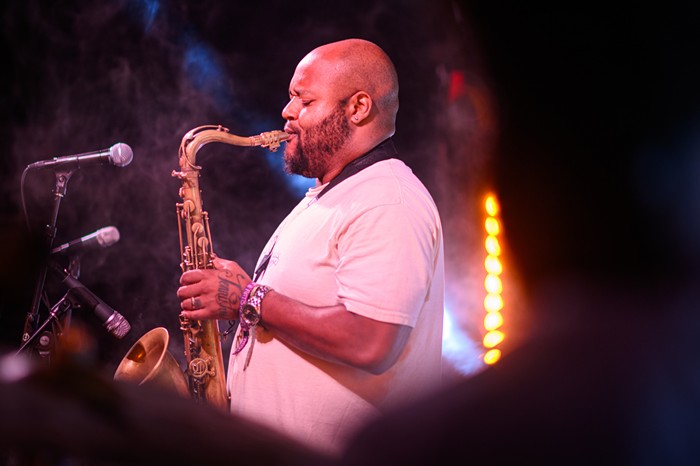DR. LONNIE SMITH and Michael Jackson once had something in common. In Smith's church boy youth, the jazz organist relied on a performing tic that became synonymous with the departed King of Pop until some proper church ladies intervened. "You got a habit of putting your hand down in your crotch when you sing," Smith remembers them whispering with concern at a choir practice.
Before a Buffalo businessman famously gifted the eager Smith with an organ—provided he could find the means to move it—Smith was a vocalist with the Buffalo Gospels, an upstate New York sanctuary favorite. His mother was a part of a family gospel quartet and whenever his cousins came to visit they would break out into spirited harmonies. His crotch grab was becoming a distraction and a source of embarrassment. "We're going to Brother John's church. Please don't do that!" the church ladies implored.
Smith, who claims an innocent obliviousness to the retired gesture, is a storyteller. When he sits before his Hammond B3 organ with his striking snow-white beard, turban, self-appointed honorific and road wisdoms, he assumes the alchemist's role, uniting his grand skill and wide influences with a winking drama. It is therefore hard to imagine the shy guy he claims he once was.
"Basically, I grew up as a loner. Even when George Benson and I started playing, I would go in the dressing room... and sit or go for a walk by myself."
Club owners used to complain. Here was a star of the late '60s soul jazz movement that foregrounded what Smith calls "slow funky grooves," and the shy teetotaler wasn't conforming to people's good-time guy expectations. Taking inspiration from an earlier era when dance, comedy, and jazz sets were interwoven, Smith committed himself to not just exacting musicianship but entertainment, hoping it might provide some avenues of opportunity.
He was disappointed to find his conviviality did not provide him much creative breathing room. "I was pigeonholed for many years," he says. He pleaded with his record company, Blue Note, to do a straight-ahead jazz record. He vividly recounts garnering a sold-out crowd in Detroit with Lee Morgan and David "Fathead" Newman. He played original compositions, "avant" and "all outside." The audience was not pleased.
"The response was terrible. And I was hurt," Smith says. He acknowledges sympathy for fans wanting to hear the familiar, but disappointment that they couldn't recognize that he was really "playing."
In the past 15 years, Smith has been highly productive. He has tackled the songbooks of Jimi Hendrix and Beck, pivoting from the slow funky grooves he does so well, without losing the muddy resonances. His most recent release, 2009's Rise Up!, is a bright incantation even in its bluesier moments and features five original Smith compositions. "People Make the World Go Round" is one of its covers but it speaks to Smith's heart. He is faithful to his audiences even when they are struck deaf by their anticipation of his signature hits, and he's sure of the vitality of jazz despite pronouncements of its death. And in that spirit he continues to orchestrate his organ with the passion of a teenager, although these days he keeps his hands safely above his groin.



















